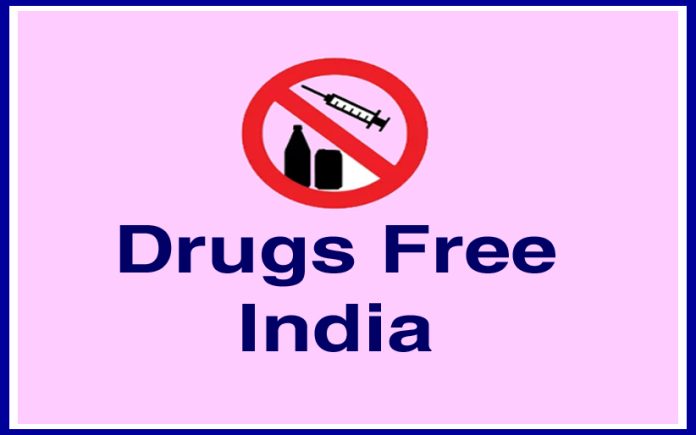The menace of illegal narcotics is a pressing issue that resonates not just within India but across the globe. The illicit drug trade poses a dual threat: it endangers public health, particularly the youth, and simultaneously funds anti-national activities such as terrorism and naxalism. HM’s remarks at Chattisgarh underscore the gravity of the situation and the urgent need for a coordinated, strategic approach to combat this scourge. The vision of a drug-free nation is not just an aspiration but an essential goal for the country’s prosperity, safety, and global standing. It is a global issue that demands an international response. However, the battle must begin at home. In India, the proliferation of drugs is particularly concerning, given the country’s demographic profile. With a significant portion of the population being young, the potential for drug abuse to derail the nation’s future is immense. The economic and social consequences are devastating, leading to a loss of productivity, increasing crime rates, and deteriorating public health.
HM’s emphasis on the need for a four-pronged approach-drug detection, network destruction, culprit detention, and addict rehabilitation-is crucial. This comprehensive strategy addresses the problem at multiple levels, from disrupting supply chains to ensuring those affected receive the help they need to recover. It also highlights the necessity of viewing drug abuse not merely as a criminal issue but as a social and health problem that requires a compassionate and multi-faceted response.
Perhaps the most alarming aspect is the link between the narcotics trade and national security. The revenue generated from the illicit drug trade is often funnelled into activities that threaten the very fabric of the nation, including terrorism and naxalism. These activities are not only a direct threat to the safety and security of the Indians but also undermine the country’s economic stability. In regions like Chhattisgarh, where there is a higher-than-average use of sedatives and marijuana, the problem is exacerbated by geographic and economic factors. Chhattisgarh’s proximity to other states with high drug smuggling activities, as well as its closeness to coastal regions like Odisha and Andhra Pradesh, make it a vulnerable hub for drug trafficking. The transition from natural to synthetic drugs, which are more harmful and harder to detect, adds another layer of complexity to the issue.
A ‘top-to-bottom’ and ‘bottom-to-top’ approach to dismantling drug networks is particularly relevant in today’s context, where drug traffickers are increasingly sophisticated in their methods. The use of e-commerce platforms, drones, and telehealth services to facilitate the drug trade indicates a shift towards more covert and technologically advanced operations. To counter this, law enforcement agencies must be equipped with cutting-edge tools and training to stay ahead of the curve. The emphasis on scientific investigation is also a recognition that the drug problem cannot be solved through brute force alone. It requires meticulous, evidence-based approaches that can trace the origins of drugs and dismantle entire networks, rather than just arresting low-level offenders.
Equally important is the emphasis on rehabilitation and addiction. Those who consume drugs are victims of a broken system, while those who deal in drugs are the true criminals. This distinction is vital in shaping a humane and effective policy response. Rehabilitation and de-addiction centres must be well-funded, staffed with trained professionals, and integrated into the broader healthcare system. Providing psychological support, vocational training, and reintegration programs to help former addicts rebuild their lives are other important aspects. Moreover, public awareness campaigns are essential to educating people, particularly the youth, about the dangers of drug abuse.
The vision of a drug-free India requires the active participation of every citizen, community, and institution. We all have a role to play in creating an environment where drugs have no place. We must fight the long and challenging journey to a drug-free India with determination and strategy. The stakes are too high to allow complacency.
Trending Now
E-Paper


